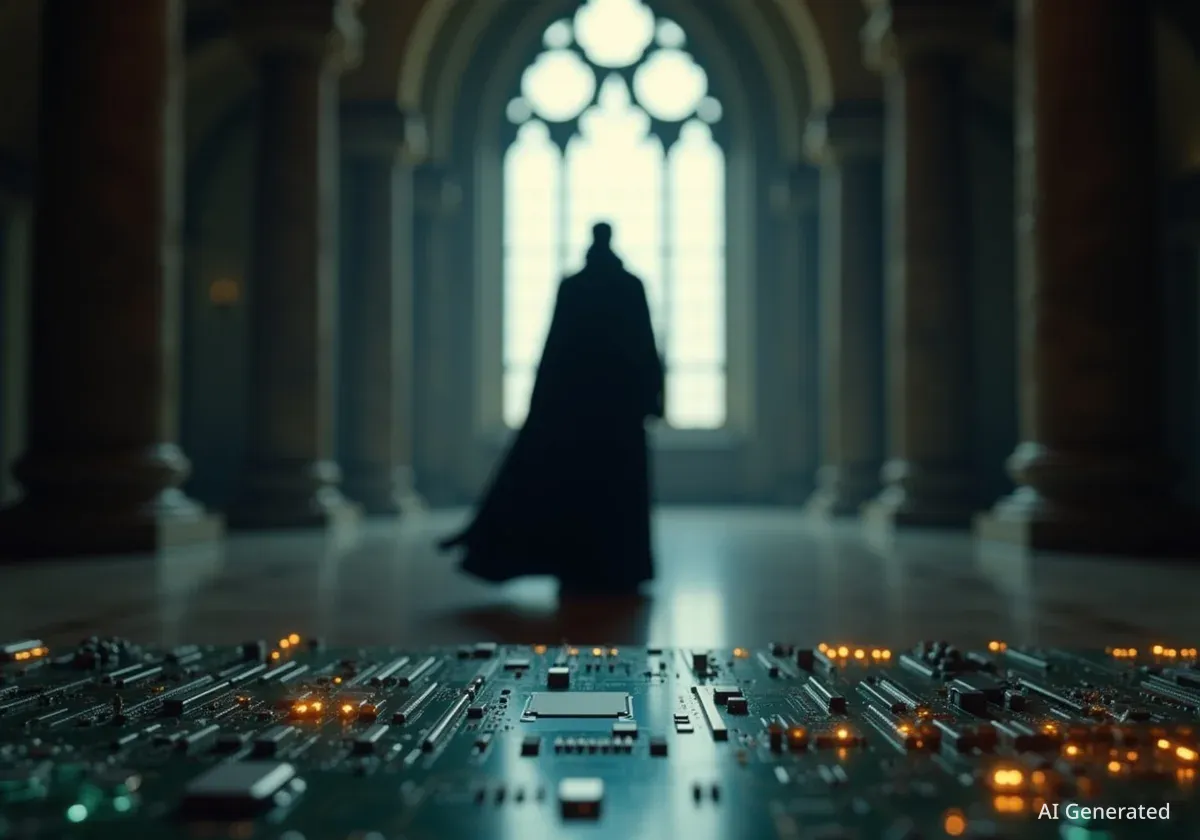In his first interview since his election, Pope Leo XIV has expressed significant reservations about the rapid development of artificial intelligence, warning that it could devalue human beings and make it “very difficult to discover the presence of God.” The pontiff also revealed he recently rejected a proposal to create a digital avatar of himself for virtual audiences.
The statements were made during an interview on July 10 at the papal residence in Castel Gandolfo and were published on September 18 in the Spanish-language book “Leo XIV: Citizen of the World, Missionary of the 21st Century.”
Key Takeaways
- Pope Leo XIV believes the focus on AI by wealthy investors ignores the fundamental value of humanity.
- He refused a request to authorize an AI-powered papal avatar for virtual interactions.
- The pontiff shared a personal experience of being targeted by a deepfake video.
- While acknowledging AI's benefits in medicine, he is concerned by the technology's incredible development speed.
- He stated that the Church has a responsibility to speak out on the challenges posed by the digital world.
A Warning Against Ignoring Humanity
During the extensive interview, Pope Leo XIV cautioned against the unchecked pursuit of artificial intelligence, particularly when driven by significant financial investment that overlooks ethical considerations. He voiced concern that powerful individuals are channeling vast resources into AI while “totally ignoring the value of human beings and humanity.”
The pontiff warned of a future where technology could create its own path, independent of human values. “The danger is that the digital world will follow its own path and we will become pawns, or be brushed aside,” he stated. This potential for dehumanization prompted him to call for greater involvement from religious institutions.
“I think the Church needs to speak out in this regard,” Pope Leo XIV asserted, emphasizing the moral and spiritual dimensions of technological advancement.
The Broader Context of AI Ethics
The Pope's comments enter a global conversation about the ethical guardrails needed for artificial intelligence. Leaders in technology, government, and civil society are grappling with issues ranging from job displacement and algorithmic bias to the spread of misinformation and the very definition of consciousness.
Personal Encounter with Digital Fabrication
Pope Leo XIV also shared a direct, personal experience with the deceptive capabilities of modern AI. He recounted an incident where a deepfake video depicted him falling down a flight of stairs, an event that never occurred.
“One day, talking to someone, [the person] asked me: ‘Are you OK?’ And I said: ‘Yes, I’m fine. Why do you ask?’ ‘Well, you fell down a flight of stairs,’” he recalled. “I said: ‘No, I didn’t fall,’ but there was a video somewhere where they had created this artificial pope, me, falling down a flight of stairs as I was walking.”
He noted that the fabrication was so convincing that people believed it was real. This experience highlighted for him the “great challenge” of fake news in the digital age. The pontiff expressed concern over the public's appetite for such content.
“Why are all these people consuming this fake news? Something is going on there,” he observed. “People want to believe in conspiracies, people want to seek out all these false things, and that is very destructive.”
The Papal Avatar and Spiritual Questions
One of the most direct examples of his stance came when he revealed a recent proposal to create a digital version of himself. He explained that someone had requested his permission to create an AI-powered pope.
The proposed system would have allowed “anyone to go to a website and have a personal audience with ‘the pope,’ and this pope created by artificial intelligence would give them answers to their questions.”
His response was unequivocal. “I said, ‘I’m not going to authorize that,’” he stated firmly. The pontiff elaborated on his reasoning, emphasizing the unique nature of his role.
“If there’s anyone who shouldn’t be represented by an avatar, it seems to me, it’s the pope,” he emphasized.
This refusal is tied to his broader spiritual concerns. He questioned the ability to find genuine divinity within a purely technological creation, stating it will be “very difficult to discover the presence of God” in artificial intelligence.
Interview Details
- Date: July 10, 2025
- Location: Villa Barberini, Castel Gandolfo
- Publication: "Leo XIV: Citizen of the World, Missionary of the 21st Century"
- Published On: September 18, 2025
A Balanced View on Technology
Despite his strong warnings, Pope Leo XIV made it clear that his position is not one of total opposition to technological progress. He specifically acknowledged the positive impact of AI in certain sectors.
“The Church is not against technological advances,” he clarified. “In the world of medicine, great things have happened thanks to AI, and in other fields as well.”
However, his primary concern is the “incredible pace” of development, which he finds “worrying.” He fears that this speed outpaces society's ability to understand its implications, leading to a blurred line between reality and fabrication. “There is a danger in this, because you end up creating a false world and then you ask yourself: What is the truth?” he concluded.





